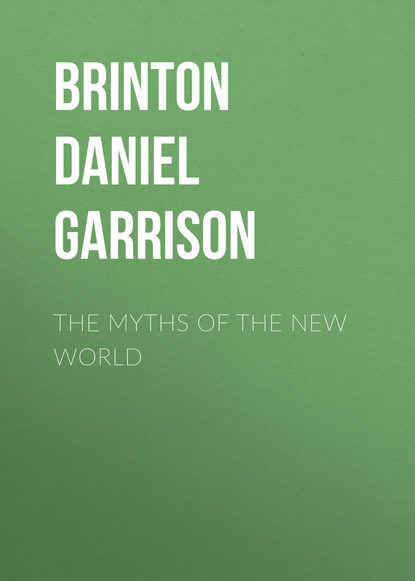 Полная версия
Полная версияThe Myths of the New World
Ximenes, Origen de los Indios de Guatemala, p. 192; Acosta, Hist. of the New World, lib. v. chap. 18.
442
Joseph de Maistre, Eclaircissement sur les Sacrifices; Trench, Hulsean Lectures, p. 180. The famed Abbé Lammenaais and Professor Sepp, of Munich, with these two writers, may be taken as the chief exponents of a school of mythologists, all of whom start from the theories first laid down by Count de Maistre in his Soirées de St. Petersbourg. To them the strongest proof of Christianity lies in the traditions and observances of heathendom. For these show the wants of the religious sense, and Christianity, they maintain, purifies and satisfies them all. The rites, symbols, and legends of every natural religion, they say, are true and not false; all that is required is to assign them their proper places and their real meaning. Therefore the strange resemblances in heathen myths to what is revealed in the Scriptures, as well as the ethical anticipations which have been found in ancient philosophies, all, so far from proving that Christianity is a natural product of the human mind, in fact, are confirmations of it, unconscious prophecies, and presentiments of the truth.
443
Alfred Maury, La Magie et l’Astrologie dans l’Antiquité et au Moyen Age, p. 8: Paris, 1860.
444
Waitz, Anthropologie, i. pp. 325, 465.
445
So says Dr. Waitz, ibid., p. 465.
446
Schoolcraft, Algic Researches, i. p. 143.
447
L’Homme Américain, ii. p. 319.
448
Brasseur, Hist. du Mexique, liv. iii. chaps. 1 and 2.
449
Sahagun, Hist. de la Nueva España, lib. x. cap. 29.
450
Novalis, Schriften, i. p. 244: Berlin, 1837.
451
Ibid., p. 267.
452
Hist. de la Civilisation en France, i. pp. 122, 130.
453
Narrative of J. R. Jewett among the Savages of Nootka Sound, p. 121.
454
Rel. de la Nouv. France, An 1636, p. 109.
455
Ibid., An 1670, p. 99.
456
Geronimo de Ore, Symbolo Catholico Indiano, chap, ix., quoted by Ternaux-Compans. De Ore was a native of Peru and held the position of Professor of Theology in Cuzco in the latter half of the sixteenth century. He was a man of great erudition, and there need be no hesitation in accepting this extraordinary prayer as genuine. For his life and writings see Nic. Antonio, Bib. Hisp. Nova, tom. ii. p. 43.
457
Sahagun, Hist. de la Nueva España, lib. vi. caps. 1, 4.
458
Morse, Rep. on the Ind. Tribes, App. p. 250.
459
Cogolludo, Hist. de Yucathan, lib. iv. cap. 9. Compare Stephens, Travs. in Yucatan, ii. p. 122, who describes the remains of these roads as they now exist.
460
Rivero and Tschudi, Antiqs. of Peru, p. 162.
461
La Vega, Hist. des Incas, lib. vi. chap. 30; Xeres, Rel de la Conq. du Pérou, p. 151; Let. sur les Superstit. du Pérou, p. 98, and others.



